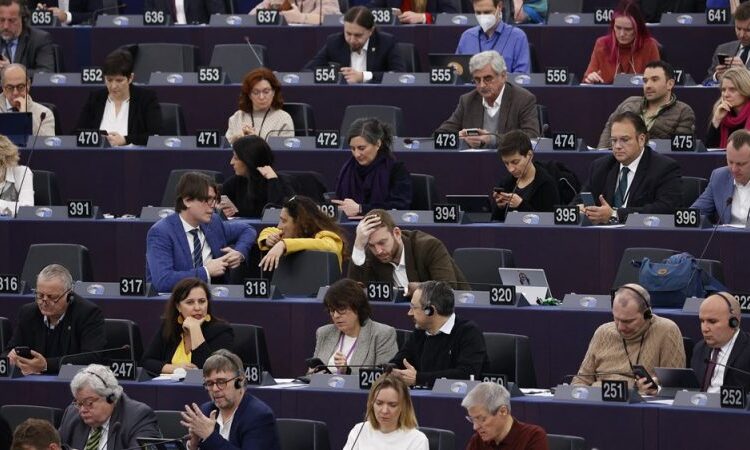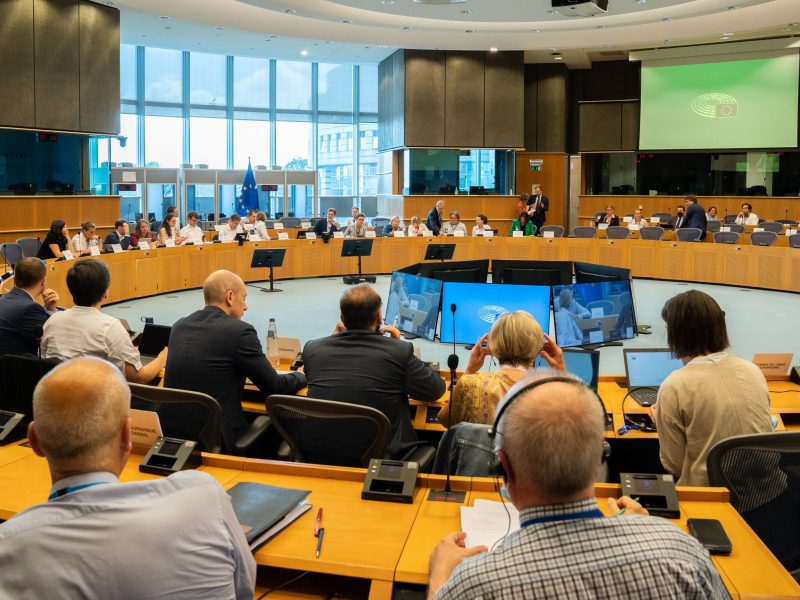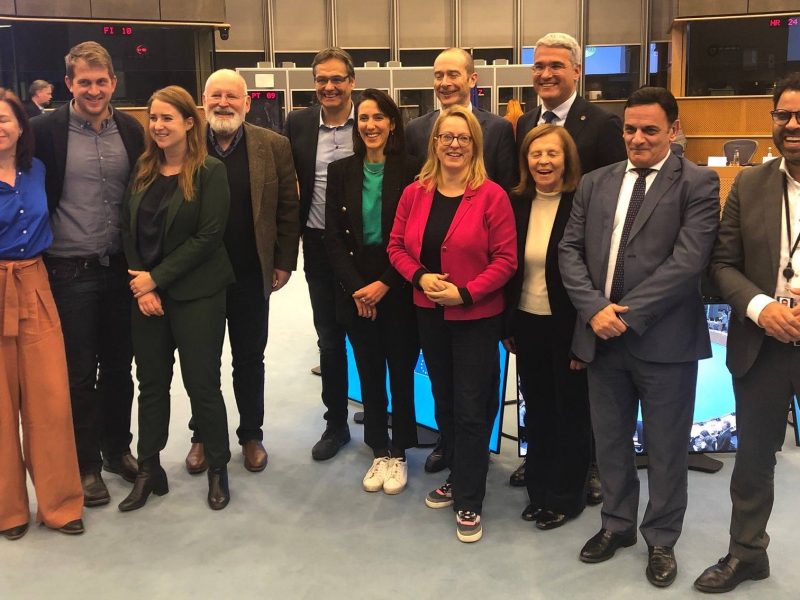French opposition warns against social unrest after EU carbon market reform deal – EURACTIV.com

The decision to include households in the EU carbon market is causing a stir among French lawmakers on the far-right and far-left of the European Parliament who are united in their opposition to the proposal.
Read the original French article here.
At the end of December, EU legislators agreed to extend the bloc’s Emissions Trading Scheme (ETS) to the building and transport sector, including private households.
The new carbon pricing system – dubbed ETS2 – will apply to petrol, diesel and heating fuels such as natural gas whose climate warming emissions have continued to rise over the years despite attempts to decarbonise.
But while Parliament wanted to delay the introduction of the scheme until 2029, EU countries in the Council of Ministers pushed for an earlier starting date and both sides ultimately compromised on 2027.
This decision leaves a bitter aftertaste for French lawmakers on the far-right and far-left of the hemicycle who continue to oppose the text and see the decision as a “betrayal of their mandate”.
Despite a concomitant decision to set up a Social Climate Fund (SCF) worth €87 billion, French MEPs warned against a social revolt similar to the one instigated by the Yellow Vests Movement in France.
“The ETS2 is, by its very nature, contrary to social justice,” said Leïla Chaibi, who is shadow rapporteur on the social climate fund proposal for the Parliament’s Left group.
“Proportionally, ETS2 will make those who are already most affected by the crisis pay more,” she told EURACTIV France.
This is regardless of the safeguards that were brought in during negotiations between the Commission, Parliament and the Council, she added, pointing to a decision to increase the SCF from €72 billion to €87 billion.
Far-right EU lawmakers are of a similar view.
“We were not in favour of extending ETS2 to fuels and heating,” said Aurélia Beigneux from the Identity and Democracy group and member of Parliament’s environment committee.
The far-right MEP reminded that the extension of carbon pricing to transport and heating was also resisted by Pascal Canfin, the chairman of the Parliament’s environment committee, who had initially warned against a “politically suicidal” proposal.
Today, “he has visibly changed his mind”, she quipped.
Strict conditions
Canfin, who hails from the centrist Renew Europe group of French President Emmanuel Macron, defended the decision.
According to him, the integration of households into the EU carbon market is planned under “very strict conditions”.
First, the CO2 price on the ETS2 is capped at €45 per tonne until 2030, which is similar to the €44.9 already applied in France, he remarks.
“This makes it possible to introduce predictability into the system and to avoid runaway prices for households,” he wrote in a post on LinkedIn.
In addition, the ETS2 could be postponed to 2028 if energy prices remain “exceptionally high“, he added. And the revenues collected under the scheme will have to be used to finance green investments for households, in areas like clean mobility and housing renovation.
“These conditions make the mechanism acceptable in my opinion, because they frame the main perverse effects of such a measure,” argued Canfin.
At the same time, the Social Climate Fund will enter into force in 2026, one year before the ETS2, which will provide EU countries with the funding necessary to assist households in the transition, argues Marie-Pierre Vedrenne, Canfin’s colleague at the centrist Renew Europe group and shadow rapporteur on the SCF.
The SCF will also become part of the EU’s next seven-year budget – “a key element to make it sustainable and to give it stable funding”, Vedrenne pointed out.
With these precautions and the increase in SCF financing, “social and climate justice is the basis of this agreement”, Vedrenne added, pointing to the compromise as the result of Parliament and Council having “to make concessions on both sides”.
“Europeans are being mocked”
Leftist MEP Leïla Chaibi disagrees, saying the EU’s decision on the ETS2 is a “betrayal of the Parliament’s mandate” which stipulated that there would be no ETS2 for households before 2029, and then only “if the conditions are met”.
Early adoption of a new carbon tax on fuels in France was exactly what fuelled the Yellow Vests Movement in 2017 and 2018, Chaibi recalled.
The memory is “still very strong”, she said ahead of a protest against French government proposals to reform the country’s pension system on Saturday (7 January) that some would like to see turn into a new general rebellion.
Beigneux, for her part, views these measures as another attack “on the most precarious households”. According to her, the ETS2 adds to the EU’s decision to ban the sale of petrol and diesel vehicles as of 2035 and comes on top of the multiplication of low-emission zones – one of the far-right’s hobbyhorses.
Given the EU’s economic situation, “the current period is really not conducive to this type of decision”, she said.
With such measures “we sincerely believe that Europeans are being mocked,” Beigneux said.
In these conditions, “it will be complicated for the Parliament’s negotiators to explain to the rest of the MEPs that they have dropped the Parliament’s main red lines”, Chaibi warned.
The European Parliament will hold a formal vote in the coming weeks to rubber stamp the agreement struck in December. With support from the main political groups, the proposal should be adopted with a clear majority.
[Edited by Frédéric Simon and Zoran Radosavljevic]









